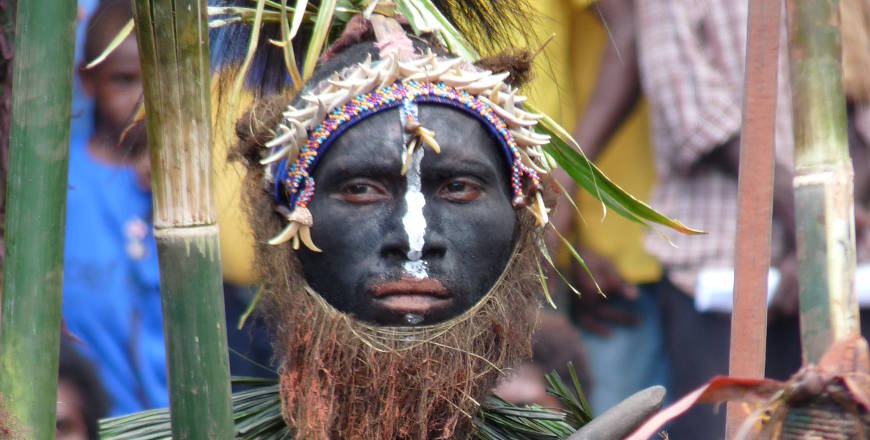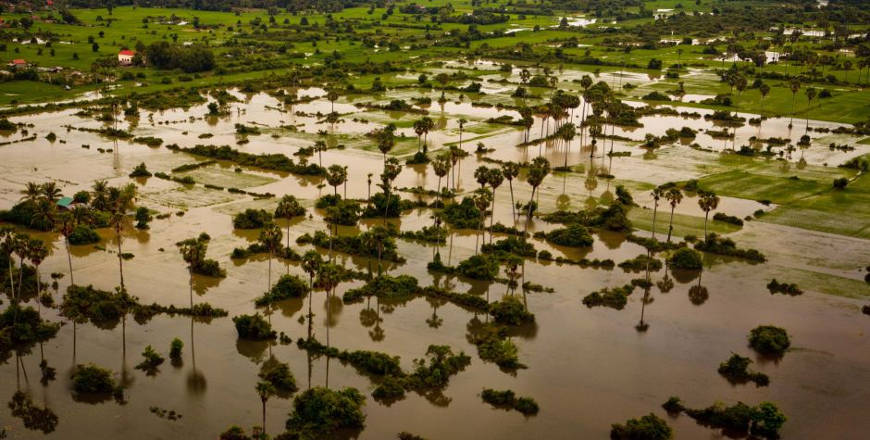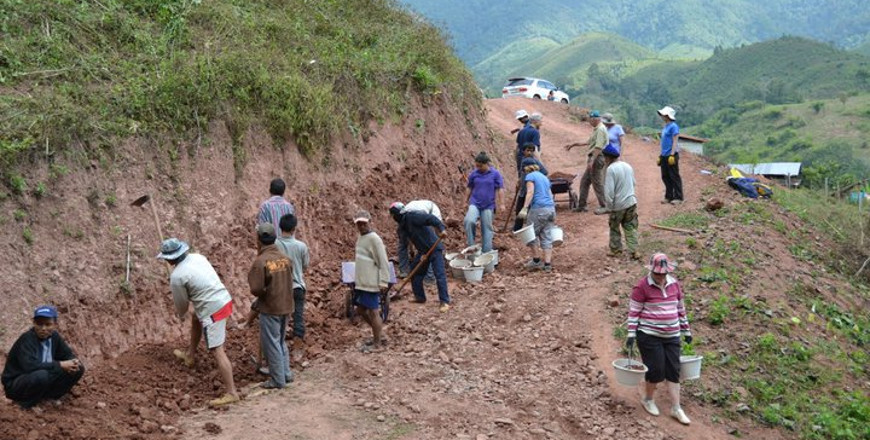Researching Melanesian culture and society
It is now two years since I came back to Goroka to work at the Melanesian Institute (MI). I say ‘back to Goroka’ because I also spent ten years of my childhood in this town. The MI is a research and teaching institute run by four big churches in PNG: the Catholic, Evangelical Lutheran, Anglican and United Churches. Over the forty years of the Institute’s life, it has compiled a large body of research into traditional cultures of PNG (and neighbouring parts of Melanesia) and the experiences of modern-day people as they cope with cultural change and ‘development’.
I am a member of the MI’s research team, which is headed by a sociologist who is also an Italian Catholic priest. During my time here I have spent much of my time on two tasks.
Shortly after I arrived in 2009, the director of the Institute asked me to create a handbook for Papua New Guinean Christians on thinking critically about sorcery and witchcraft. Many people in PNG still attribute bad events (especially untimely deaths) to sorcery or witchcraft. Just as in Europe a few hundred years ago, it is mostly women who are the scapegoats. They are accused of causing bad events by evil witchcraft and are tortured brutally and mercilessly killed. This happens frequently. Between 2003 and 2008 the MI’s research team collected lots of information about people’s magical beliefs and produced two academic books, but we also wanted to produce a book for less highly educated people. This handbook is now finished and is being printed in two languages: simple English and Tok Pisin. MI’s work on sorcery and witchcraft has prompted people to take the issue seriously. It has influenced the PNG government to review the Sorcery Act, the law governing ‘crimes that involve evil magic’. This review is still under way. We hope these handbooks will continue to have a good influence and will help curb the evil of wrongful accusations.
My second task has been to help with research into the views of Christians from the smaller but rapidly growing Evangelical and Pentecostal churches about the HIV and AIDS epidemic in PNG. Some HIV workers from government, NGOs and other churches criticised these smaller churches for things their people were allegedly saying and doing about HIV. For example, some Christian fundamentalists were criticised for being judgmental towards people who are HIV positive and thereby worsening their suffering. Some Pentecostals were criticised for advertising faith healings to boost their memberships and incomes, and some for allegedly claiming that faith healing is conditional upon giving up hospital treatment. This research is now finished, and the 2011 issue of the MI’s publication Point will report the findings. I wrote some chapters for the report and helped others from non-English-speaking backgrounds to write theirs.
In 2012, MI will continue research on disability in PNG, and it looks as if we’ll investigate some aspects of the multi-billion-dollar Exxon-Mobil-backed Liquefied Natural Gas project in PNG’s Southern Highlands. This mega-project is predicted to dramatically increase PNG’s national income. How the costs and benefits of this project are distributed is an important question for PNG. I look forward to helping answer this question over my next two years here.
Em tasol.
This story was also published in the October 2011 edition of Border Crossings, the magazine of LCA International Mission.
If you would like to consider the opportunity to serve as a volunteer in mission, serving in practical ways, teaching English, teaching in the seminaries and institutions of our partner churches, or in local churches, you are invited to phone Nevin on (08) 8267 7300 or email nevin.nitschke@lca.org.au. For more information, go to http://www.lcamission.org.au/join-gods-mission/volunteer/
Read more stories about volunteering at http://www.lcamission.org.au/category/join-gods-mission/volunteers/




